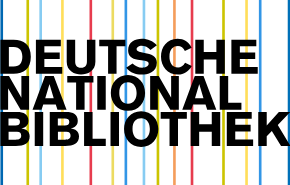GREEN TECHNOLOGIES AND THEIR IMPACT ON ECONOMIC EFFICIENCY
DOI:
https://doi.org/10.55640/Keywords:
green technologies, sustainable development, renewable energy, energy efficiency, environmental transport, green building technologies, waste recycling, climate change, innovation economy, green economy of UzbekistanAbstract
The article analyzes the role of green technologies in the modern economy, their impact on economic efficiency and the results of their application in various industries. Through the introduction of green technologies in energy, transport, construction and agriculture, the possibilities of reducing costs, efficient use of resources and achieving economic growth are outlined. The prospects and measures for the development of green technologies in the conditions of Uzbekistan are also substantiated.
References
1.International Energy Agency (IEA). (2023). World Energy Outlook 2023. Paris: IEA Publications.
2.United Nations Environment Programme (UNEP). (2022). Green Technology and Sustainable Development. Nairobi: UNEP.
3.International Labour Organization (ILO). (2018). World Employment and Social Outlook 2018: Greening with Jobs. Geneva: ILO Publications.
4.World Bank Group. (2020). The Green Economy: Opportunities for Sustainable Growth. Washington D.C.: World Bank.
5.European Environment Agency (EEA). (2022). Renewable Energy in Europe: Key Trends and Statistics 2022. Copenhagen: EEA.
6.International Renewable Energy Agency (IRENA). (2023). Renewable Energy and Jobs – Annual Review 2023. Abu Dhabi: IRENA Publications.
7.OECD. (2011). Towards Green Growth. Paris: OECD Publishing.
8.United Nations Framework Convention on Climate Change (UNFCCC). (2015). Paris Agreement. United Nations.
9.Porter, M.E., & van der Linde, C. (1995). "Toward a New Conception of the Environment-Competitiveness Relationship," Journal of Economic Perspectives, 9(4), 97–118.
10.Sachs, J.D. (2015). The Age of Sustainable Development. New York: Columbia University Press.
11.Presidential Decree of the Republic of Uzbekistan (October 4, 2021), No. PQ-5264, "Strategy for the Development of the Green Economy and Resolution of Environmental Problems."
12.Ministry of Energy of the Republic of Uzbekistan. (2023). Program for the Development of Renewable Energy Sources in Uzbekistan. Tashkent.
13.Israel's Ministry of Agriculture and Rural Development (MASHAV). (2022). Efficient Irrigation Technologies for Arid Regions. Tel Aviv: MASHAV Publications.
14.LEED Green Building Council. (2022). LEED v4.1 Building Design and Construction Guide. Washington, D.C.: U.S. Green Building Council.
15.Teslarati. (2023). Tesla Annual Impact Report 2023. Palo Alto: Tesla Inc.
Downloads
Published
Issue
Section
License

This work is licensed under a Creative Commons Attribution 4.0 International License.
Authors retain the copyright of their manuscripts, and all Open Access articles are disseminated under the terms of the Creative Commons Attribution License 4.0 (CC-BY), which licenses unrestricted use, distribution, and reproduction in any medium, provided that the original work is appropriately cited. The use of general descriptive names, trade names, trademarks, and so forth in this publication, even if not specifically identified, does not imply that these names are not protected by the relevant laws and regulations.







